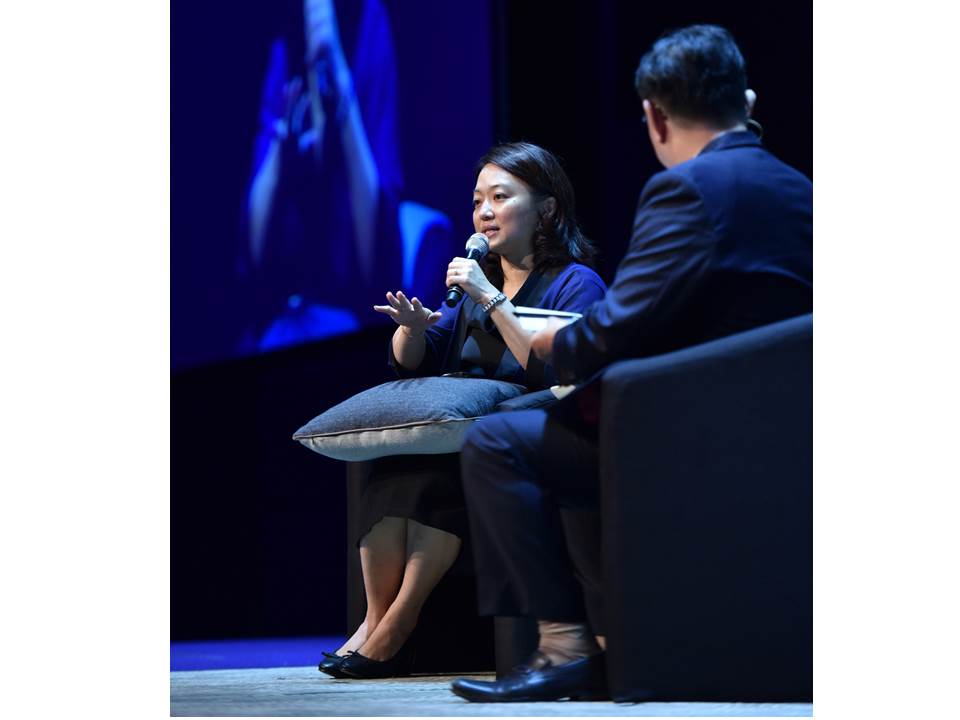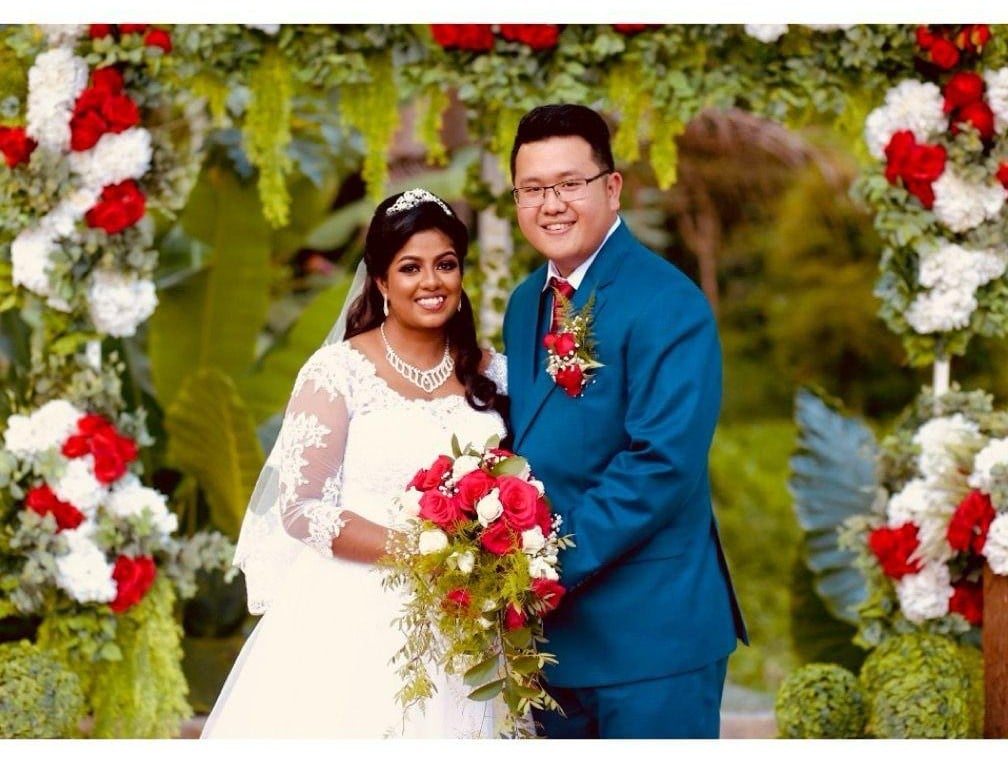“Surround yourself with people who can say ‘no’ to you”: Deputy Minister Hannah Yeoh on leading well
by Karen Tan // August 29, 2019, 5:34 pm

"Don't start another year without hearing and seeking God,” says Malaysia's Deputy Minister for Women, Family and Community Development Hannah Yeoh. https://www.facebook.com/hannahyeoh/
This is Hannah Yeoh’s tenth year in Malaysian politics.
At 29, the self-described “young chiku” made her first foray into an arena which many considered challenging, with “no room for Christians”.
Today, she is the Deputy Minister for Women, Family and Community Development, and was appointed after the Pakatan Harapan (PH) coalition won the elections more than a year ago.

Hannah Yeoh speaking on staying on purpose at the Eagles Leadership Conference 2019. Photo courtesy of Eagles Communications.
“If not for the hand of God over my life, I don’t think that I could have come this far. There are no areas too dark for light to work,” she said at the Eagles Leadership Conference 2019 in July.
With 10 years of political experience under her belt, Yeoh, now 40, shares critical leadership lessons she has learnt along the way:
1. Start the year seeking God
It is important to seek God and understand your purpose as a leader.
“Your organisation cannot give you purpose. Your purpose as an individual ultimately comes from God, your Maker.
“It is about understanding what God has for you and what God has made you to be. Use that, and apply it to your work,” says Yeoh.
“Your organisation cannot give you purpose. Your purpose as an individual ultimately comes from God, your Maker.”
She advises an annual check-in with God: “Really, don’t start another year without hearing and seeking God.”
And after several years, check-in again for His direction for the next lap: “I never assume that I will be here (in the same position) for the next five years. I will always go back and I’ll ask God if He wants me to continue. Then I would ask for a clear sign that has to be confirmed by others.
“So understanding your purpose is one thing, understanding the season is also another thing.
“And that’s why we need the Holy Spirit at all times to lead us to tell us: This is a season, this is a time, this is what you need to do.
“Every time I need direction, when I need to make a decision, I go back to the Word.”
2. Hold your position lightly
“If you attach your purpose with your position, when you lose that position, you become directionless and disillusioned, and you may think there are no more battles and I am no longer needed.
“The higher you go, the more important it is to surround yourself with people who can say ‘no’ to you.”
“If you attach your position to the purpose of your organisation based on your competition, when your competitor is out, you become complacent and complacency really kills purpose.
“Our purpose, our call is beyond that.
“When your purpose is not attached to a position (or situation), you can come in and out of positions, you can hop from one place to another, you can even lose your job, but your purpose remains.
“We need to be flexible for God to use.”
3. Be accountable and submitted
“An accountability structure is important. God gave us a model and Jesus is the best demonstration.
“Understanding your purpose is one thing, understanding the season is another thing. That’s why we need the Holy Spirit to lead.”
“Even though Jesus was leading disciples and doing signs and wonders and all, He remained submitted to the Father, and to His will,” says Yeoh. (Luke 22:42)
“The higher you go, the more important it is to surround yourself with people who can say ‘no’ to you because the higher you go, people will tell you what you want to hear. You get a lot of yes-men, but you don’t want that.”
Therefore, besides answering to the authorities placed above her, Hannah Yeoh takes it a step further: “Look for an accountability structure; I surround myself with people who understand my ministry (work), and who can input into my life – not just one person but a few because in the counsel of many there is safety (Proverbs 15:22).
“Of course the biggest person who can give me input is my husband. He leads me spiritually and he takes a keen interest in my work, he reads up and understands what is going on.”
4. Build up the team
As a leader right at the top, pay attention to the staff at the bottom. “Sometimes their voices will never be sent right up, so when you go down, you’ll understand their challenges,” says Yeoh.
“When I understand the load of the people I’m leading, my battle is to improve what they are going through. Then, they are more likely to come on board and join me.
“When I understand the load of the people I’m leading, my battle is to improve what they are going through.”
“When people feel that you don’t stick your neck out for them, they are not going to stick their neck out for you. It works both ways.”
Affirming and giving credit is important, but it is not always about money. “Use social media to give credit to your team. It doesn’t cost any money but it makes people feel appreciated, that somebody noticed the work. Even when they work in secret, they know at the end of the day, somebody notices.”
With the carrot and stick approach, Yeoh cautions: “When you want to discipline for their lack of performance or failure, you’ve got to also make sure that when you fail yourself, you need to say sorry.”
“Many leaders will just take credit but, when it is bad, they push it to the subordinates.”
5. Keep communication channels open
A good leader needs to be both communicative and consultative: “I give my staff room to speak to me. If they don’t think that what I’m doing is a good idea, they must be able to tell me without fearing me.
“We need to be flexible for God to use.”
“If you’re a leader and your staff fear to talk to you or have a conversation, then you are very likely to make a mistake.
“You must also always take time to engage your stakeholders and make sure they understand the battle that you’re in, the intent and the purpose. So it’s very important to communicate.
“Always explain your motive on what you want to do. When the team gets it, they will take up the vision and fight on their own. You don’t have to tell them, they will get things done.”
6. Look at trials as testimonies in the making
“There are very, very tough issues. And many times you are misunderstood or you’re criticised but I will tell you that the most important battle really has to be one up here (in the mind) first, within yourself.
“A challenge is a potential for me to testify about it someday. I look forward to tackling it.”
“I know that, if I handle (the trial) well, if I do it correctly, it is potentially a testimony.
“When I see that challenge, then I make sure that it doesn’t stop at being a challenge and that there is a potential for me to testify about it someday. I look forward to tackling it.
“And I always make sure that I don’t do it with my own strength. When I hit a roadblock, I seek counsel, talk to my teammates, my team leaders and my spiritual mentors to make sure that I’m on the right track.”
We are an independent, non-profit organisation that relies on the generosity of our readers, such as yourself, to continue serving the kingdom. Every dollar donated goes directly back into our editorial coverage.
Would you consider partnering with us in our kingdom work by supporting us financially, either as a one-off donation, or a recurring pledge?
Support Salt&Light


